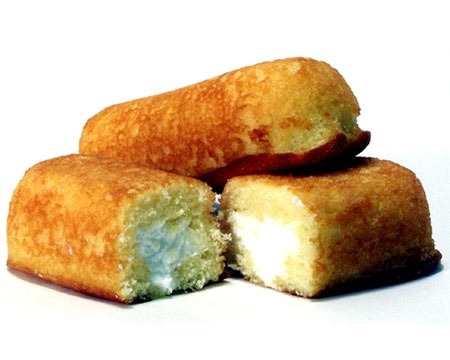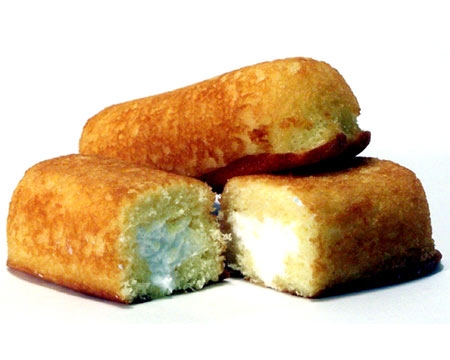Ferran Adrià On Twinkies And People Who Put Cream In Their Coffee
For anyone interested in the man behind el bulli, Frank Bruni's TimesTalk interview with the chef this past weekend at The TimesCenter during the Food Network New York City Wine & Food Festival was a real treat. Among other interesting topics like his philosophy on the omelette and the mini-skirt (quick, who invented the mini-skirt? Mary Quant? No, the Egyptians), the legendary chef touched on a few other serious and not-so-serious points, including Twinkies, not having a master, and being the first. Below, a few excerpts.
While preparing himself for the Ferran interview, Bruni recalled having read that one of Ferran's favorite things to eat when growing up were Twinkies. Frank Bruni corrected Ferran (or the translator) that Twinkies weren't filled with chocolate, but cream. "No, no, no," noted Bruni. "Not chocolate. Cream-filled. Very delicious. We're proud of that in America." Ferran went on to assert that while people may think his tastes are luxurious and ultra high-end, he's "not from Mars." And then he restated his love for Twinkies. (Photo courtesy Wikimedia Commons/Larry D. Moore)
and people who put cream in their coffee: "Some people like hamburgers with mustard, and some with ketchup. Some people like coffee straight and some with milk. So Frank has been a restaurant reviewer, I have been a chef. So let's say we know the truth, because we know more than most. And we say, good coffee doesn't take cream or sugar. Objectively, that's how it should be. All those who have cream in their coffee don't know anything about coffee... Go to a Starbucks and sit down and start observing people, see who is ordering coffee with cream and who doesn't, and who puts sugar in their coffee. You will be very surprised. Very, very few people take their espresso with no cream and sugar. One has to have a very big barrier to avoid going mad. And these thoughts, these simple thoughts have helped me come up with this kind of defense, and the reason is because I didn't have a master to look up to. Because if I'd had a master, I would never would have asked myself these questions. I would have had my answers from them. But masters, teachers also make mistakes." (Photo courtesy Wikimedia Commons/Julius Schorzman)
"I understood that as long as I continued to learn it would be wonderful. And I realized I still had this thing I had as a child, this need and desire to learn. It's also because I understood it's impossible to know everything about a cuisine. Impossible. We could talk about apples for example, just one single apple. Who knows about apples? A person growing apples probably. How many different types of apples can there be? And where is each originally from? And what kind of dishes do they make in Hungary with apples? And I'm sure none of you, not even myself would be able to answer these questions. Just one single ingredient. There are thousands of ingredients. You learn by eating." (Photo courtesy Wikimedia Commons/Abrahami)
On being the first: "In life, it's not so important to be the first. It's to be the person who conceptualizes. Because in the end everything exists already, it's a question of seeing something and conceptualizing it. Until 1998 hot jelly hadn't existed. But it had existed. You could find it in Chinese cuisine. They knew that agar agar could tolerate 90 degrees. But no one had actually conceptualized the hot jelly. And we did the first hot jelly in history in 1998. We conceptualized it."

